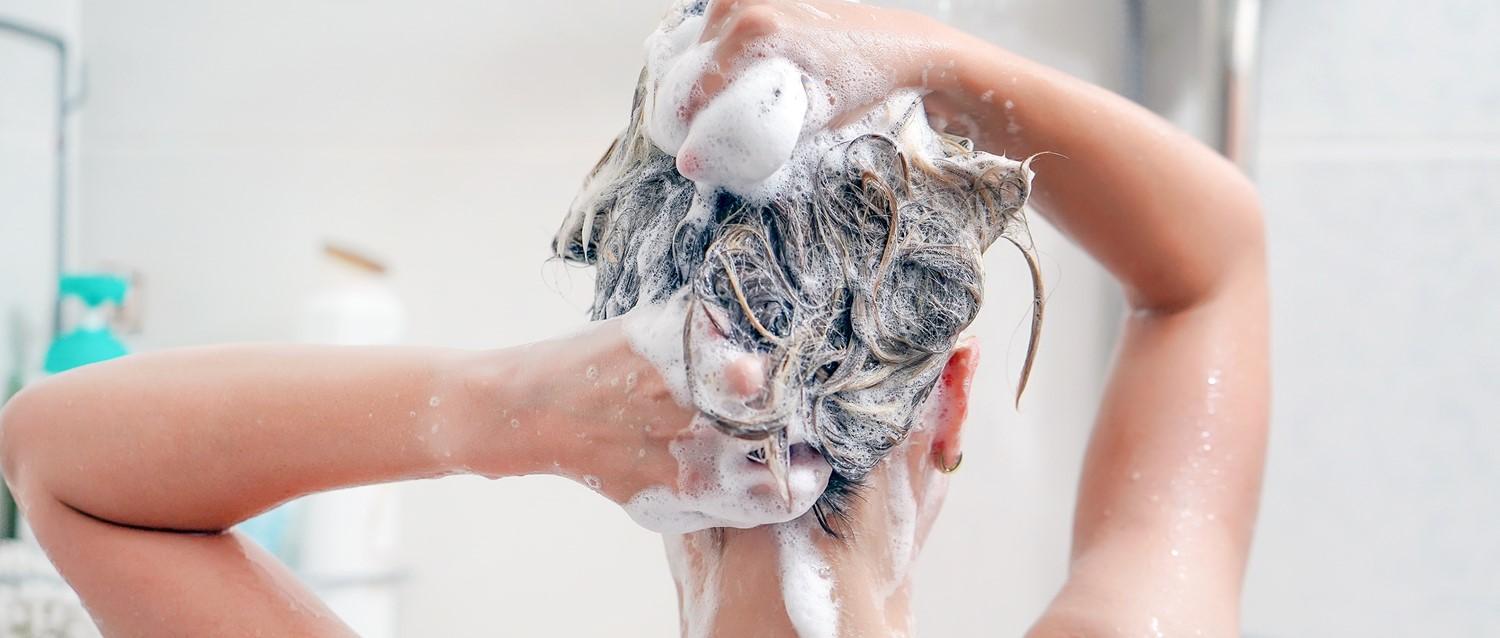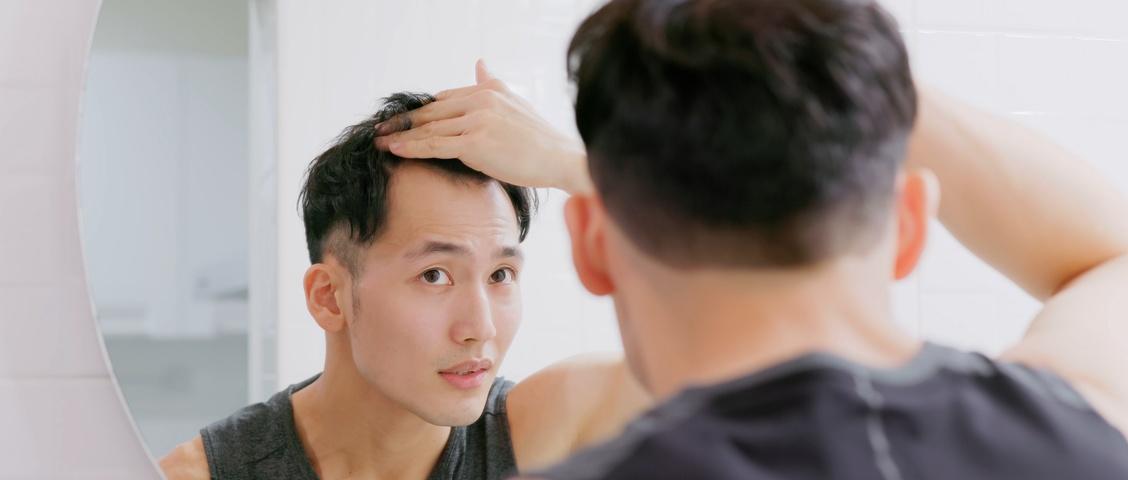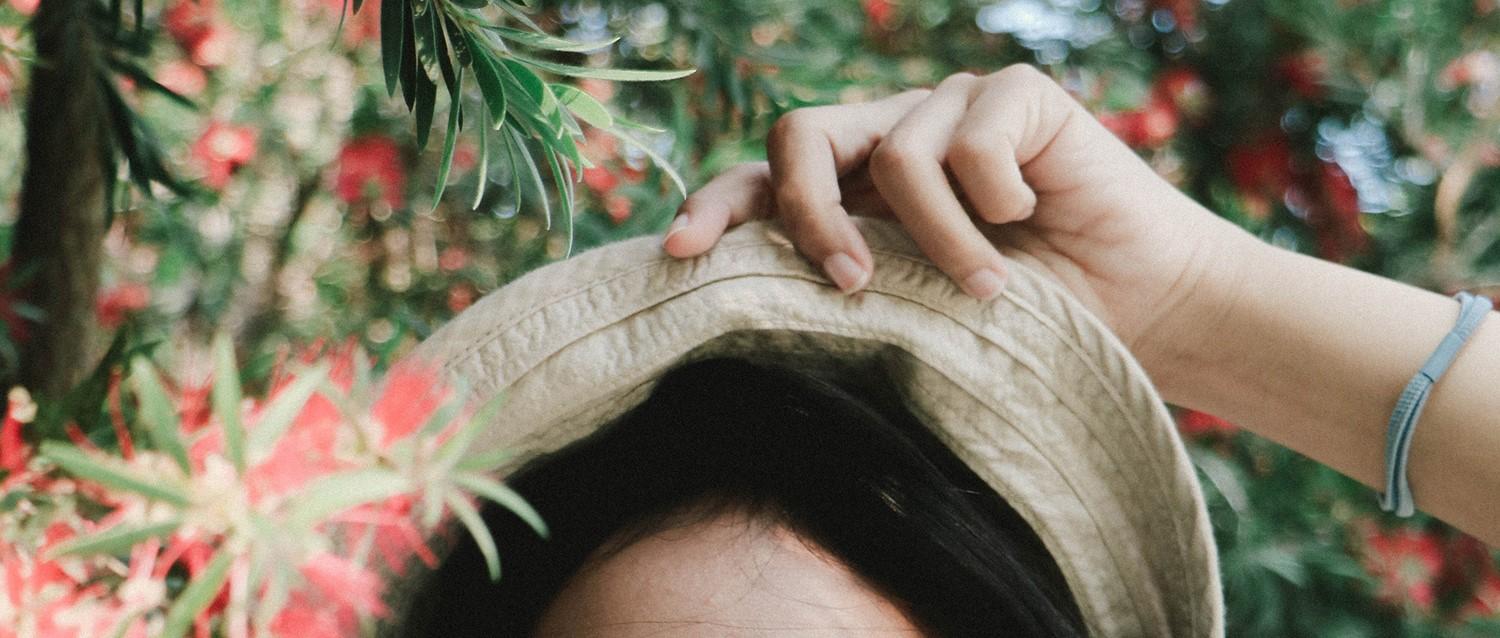
How often should you wash your hair?
Peer reviewed by Dr Sarah Jarvis MBE, FRCGPLast updated by Emily Jane BashforthLast updated 2 Feb 2022
Meets Patient’s editorial guidelines
- DownloadDownload
- Share
- Language
- Discussion
While you likely have a hair care routine that works for you and your lifestyle, can you be sure you are washing your hair at the correct times and using the best products for your hair type? Let's explore how frequently you should be washing your hair (it's probably less often than you think) and the simple methods you can use to discover what type of hair you have.
In this article:
Continue reading below
Should you wash your hair every day?
There are a number of factors that can influence how often you wash your hair, including:
Type of hair.
Use of styling products.
The amount of sweat you produce.
If you tend to sweat heavily it can be tempting to wash your hair every day. This is because sweating can cause excess sebum, the oil your scalp naturally produces. This may leave your hair looking and feeling greasy. You may also want to wash your hair daily if you use gel, mousse or spray. However, shampooing your hair daily can strip it of its natural oils and dry it out.
"I do not generally recommend washing hair every day, as this can damage your scalp's microbiome (a mix of micro-organisms that lie on the scalp). This gives easier access to bad bacteria and fungi, which can cause inflammation and itching," says dermatologist Mehmet Göker.
What type of hair do you have?
Back to contentsGöker suggests the following method for checking your hair type.
"You can do this with a piece of thread placed alongside your hair strands. Hold a single strand of your hair next to the thread. If your hair is thicker than the thread then your hair is coarse and may be harder to maintain. If your hair is the same thickness as the thread this is categorised as medium hair. Lastly, if your hair is much thinner than the thread, your hair is most likely fine and you should be cautious of any breakage," he says.
Continue reading below
Does your hair type influence how often you should wash it?
Back to contentsIt is recommended you wash your hair when it starts to feel oily or unclean to the touch: however, this can differ depending on your hair type.
Recommended hair washing schedules for different hair types:
People with medium-weight, straight hair can usually go for around two or three days without washing.
People with thick, curly hair should avoid washing their hair more than once or twice a week, as excess shampooing of this type of hair will leave it dry and frizzy.
People with coarse and Afro hair should ideally wash their hair once every two weeks, or once a week at most, as this hair type is the most fragile
People with damaged or dry hair should ensure they incorporate deep conditioning of their hair as part of the routine.
Can you use dry shampoo in the meantime?
Dry shampoo is an effective, handy option if your hair feels like it needs a refresh. However, you should try to avoid relying heavily on it as a replacement for regular washing.
Göker says dry shampoo can also be an option if washing your hair frequently is not practical, but it can clog your hair follicles.
"But, using dry shampoo on fine hair can add volume, and it is also easier on the scalp in comparison to shampooing."
What type of shampoo should you use?
Back to contents"To prolong the time between washes, it is important to establish your hair types needs and ensure you are choosing a shampoo that caters for your specific hair type," says Göker.
"For example, if your hair type is curly, I recommend using a shampoo that helps with curl retention, while those with dry or damaged strands should use a moisturising formula to prolong the time between washing."
He says it's important to establish the needs of your hair and ensure you are choosing a shampoo that caters for your specific hair type, in order to prolong the time between washes.
Continue reading below
Exactly how should you wash your hair to ensure you are doing so correctly?
Back to contentsAs well as the products you use when washing your hair, the technique you use is equally as important.
How to wash your hair properly, according to dermatologist Mehmet Göker
Begin by wetting your hair thoroughly with warm water.
Once your hair is completely wet, apply your shampoo by massaging it into the scalp.
Spend up to three minutes cleansing your scalp, no matter your hair length or hair type.
Focus your initial shampooing efforts on your scalp to help remove dirt.
Next, it is important to rinse thoroughly.
Shampoo twice if necessary (the first shampoo will help break up oil and product build-up, and the second washes away whatever remains).
Finally, apply conditioner and rinse again.
Dry your hair using the lowest heat setting on your hairdryer, or allow it to air dry.
Advice for coarse and Afro hair
Back to contentsGöker says: "When you first get into the shower, let lukewarm water run through your hair for 3-5 minutes. Because your hair is thicker, it'll take longer for all of it to get wet. The warm water will loosen built-up grime, product, and grease.
"With Afro hair, I recommend washing it every 7-10 days. It is important to cleanse your scalp to ensure optimum health and hair growth. Afro-textured hair also benefits from the use of oils, as it does not naturally produce as much oil as straighter hair types and it is easier for moisture loss to occur."
Co-washing could be an option if you have coarse or Afro hair and feel like washing once a week isn't enough. This means using conditioner only to help soften your hair.
What about sensitive scalps?
Back to contentsIf you have a sensitive scalp, you should be mindful of the ingredients you use to avoid irritation.
You should use lukewarm water throughout the hair-washing process to protect your scalp. To keep your scalp and hair hydrated and nourished, it may be worth investing in a high-quality, natural nourishing oil.
"If you have a sensitive scalp, avoid washing your hair too often, to give your hair a break. I also recommended using a pH-neutral, mild shampoo that is suitable for sensitive skin," suggests Göker.
When it comes to drying, he suggests air-drying your hair or using the coldest setting on your hairdryer. In terms of aftercare, you can apply a calming scalp serum if necessary.
Does the advice for hair washing differ between men and women?
Back to contentsMen generally need to wash their hair more often than women. This is because testosterone can increase the production of sebum causing the hair to feel more oily.
However, there is generally no difference between male and female hair.
"It is important, though, to note that each hair type has different needs. It is vital to figure out what your hair type is and tweak your shampoo features and composition accordingly," says Göker.
Patient picks for Hair and scalp

Skin, nail and hair health
Can hair transplants improve mental health?
Hair loss is a common issue, impacting about two-thirds of men and a quarter of women during their lifetime. Inspired by various celebrities who have openly shared their experiences, many are choosing cosmetic procedures - such as hair transplant surgery - to deal with baldness and improve their self-esteem. According to the International Society of Hair Restoration (ISHRS), more than 80% of hair transplant patients are men.
by Victoria Raw

Skin, nail and hair health
Common causes of an itchy scalp
If you tell someone you are scratching your head, with a bit of luck they will assume you are engrossed in a serious bit of cogitation. However, it is probably more likely that you are actually suffering from an itchy scalp. There are lots of reasons for our scalps to become irritated but here are a few common causes and what you can do about it.
by Dr Jessica Garner, MRCGP
Video picks for Hair and scalp
Continue reading below
Article history
The information on this page is peer reviewed by qualified clinicians.
2 Feb 2022 | Latest version

Ask, share, connect.
Browse discussions, ask questions, and share experiences across hundreds of health topics.

Feeling unwell?
Assess your symptoms online for free
Sign up to the Patient newsletter
Your weekly dose of clear, trustworthy health advice - written to help you feel informed, confident and in control.
By subscribing you accept our Privacy Policy. You can unsubscribe at any time. We never sell your data.